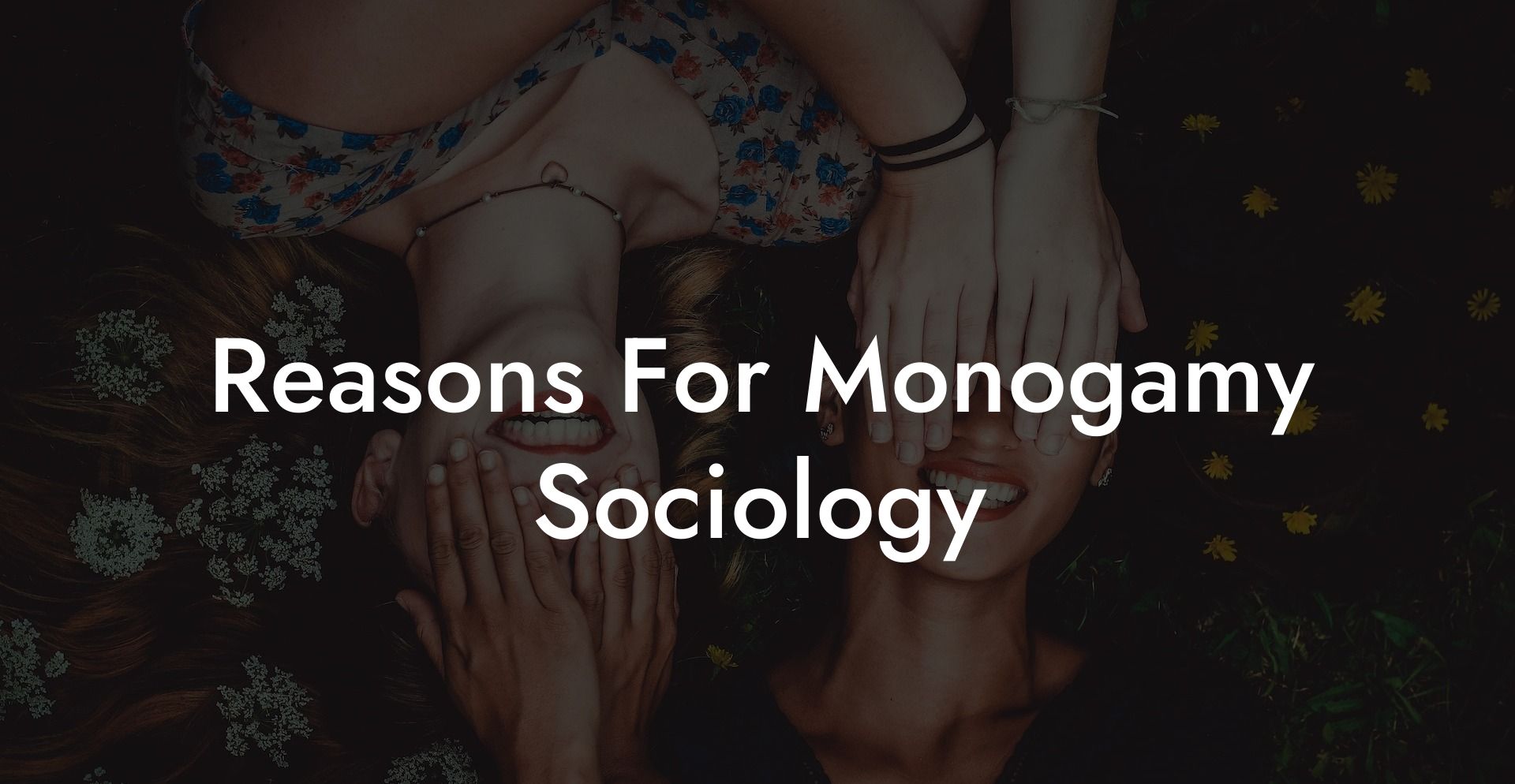Monogamy has long been regarded as the default relationship structure in many cultures, but modern society is seeing an increase in the acceptance of alternative arrangements. In this article, we dive into the reasons behind monogamy from a sociological perspective to provide a clearer understanding of its role in society.
Reasons For Monogamy Sociology Table of Contents
Historical Context of Monogamy
Evolutionary Basis
Some sociologists argue that monogamy has an evolutionary basis, as it allows for effective child-rearing and increased survival rates. By having a stable partnership, resources are shared, and both parents can be involved in raising the child. This distribution of responsibility increases the survival chances of the offspring.
Religious Influence
Monogamy has also been heavily influenced by religion. Most major religions around the world endorse and promote monogamous relationships, with some even condemning non-monogamous relationships heavily. The sanctity of marriage between two individuals is seen as a divine bond, and the foundation of a stable, moral society.
Legal and Economic Factors
Legal and economic systems have been built around the concept of monogamous relationships. This includes inheritance laws, taxation policies, and social welfare benefits. These systems reinforce the idea that a two-person partnership is the standard for structuring family relationships.
Social Benefits of Monogamy
Emotional Security
One of the main reasons people choose monogamous relationships is because of the emotional security and stability they provide. Committing to one person allows for a deepened emotional connection and the ability to share the ups and downs of life, offering unwavering support and understanding.
Trust and Fidelity
The idea of exclusivity in a relationship promotes trust, as partners agree not to engage in intimate relationships with others. This notion of fidelity allows both parties to feel secure in their partnership and avoids complications that may arise from jealousy or feelings of betrayal.
Economic Stability
As mentioned before, monogamous relationships are linked with various economic systems. By pooling resources and sharing financial responsibilities, couples are often in a better position to achieve economic stability. This stability can lead to improved quality of life and increased opportunities for their children.
Challenges to Monogamy
Alternative Relationship Structures
With a growing number of people exploring open relationships, polyamory, or other forms of ethical non-monogamy, the traditional concept of monogamy is being questioned. People are more open to considering alternative structures that best suit their individual needs and values, breaking away from the conventional one-size-fits-all approach to relationships.
Changing Societal Norms
Changes in societal norms around gender roles, sexuality, and personal identity have contributed to a shift in what is considered acceptable in relationships. People are more willing to redefine what it means to be in a committed and loving partnership, moving away from the traditional prescription of monogamy.
Reasons For Monogamy Sociology Example:
Imagine a young couple who have been together since they were teenagers. They were both raised in religious households, where monogamy was regarded as the only acceptable form of relationship. As they grew older and began questioning their beliefs, they decided to explore polyamory for a period. After some time, they ultimately chose to return to a monogamous relationship for the emotional security and trust it provided. Their experience highlights the importance of understanding individual desires and preferences within relationships, and the influence of societal factors on the decisions people make.
Monogamy is deeply rooted in history, culture, and social constructs. While monogamous relationships offer many benefits, individuals must consider their own values and desires when determining what type of relationship structure is best for them. We hope this exploration of monogamy from a sociological perspective has provided you with a deeper understanding of why it remains the dominant relationship structure for many. If you enjoyed this article, please share it with others who may find it insightful and consider exploring other informative guides on The Monogamy Experiment.













